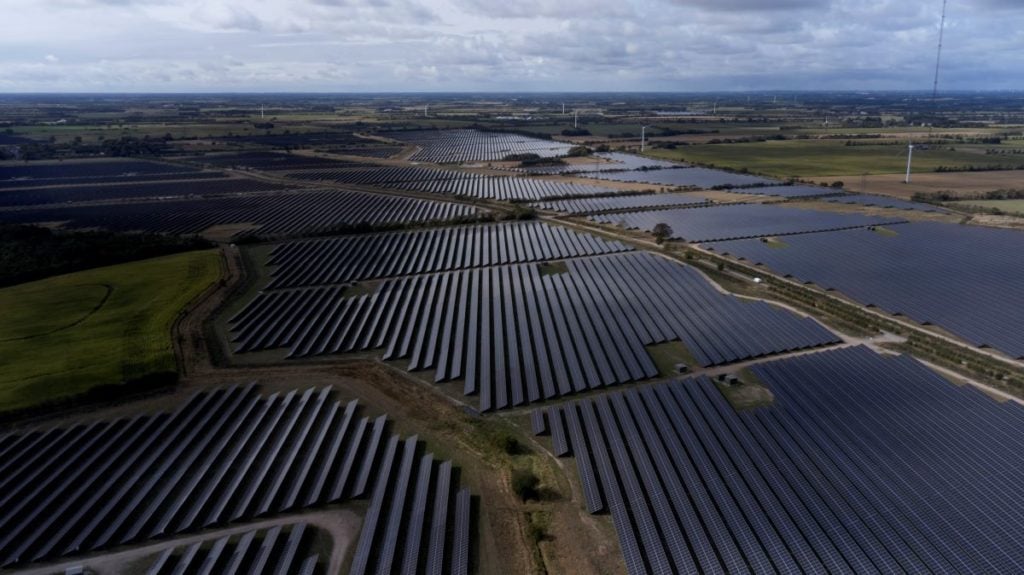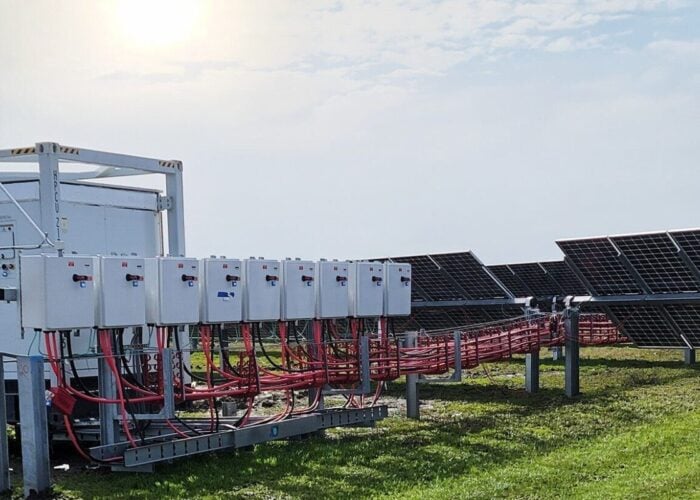
Danish renewables firm European Energy has secured a €145 million (US$158 million) long-term loan to finance a 78.5MW solar park co-located with a 50MW battery energy storage system (BESS) in Anykščiai, Lithuania. The BESS facility is set to open in 2026.
The green loan, provided by SEB Lithuania and Swedbank Lithuania, will support three renewable energy assets, including two wind farms – Telšiai I and Telšiai II – each with an installed capacity of 60MW. According to the firm, the hybrid project is expected to produce around 0.5 TWh of electricity annually, meeting approximately 4% of Lithuania’s total power demand.
Try Premium for just $1
- Full premium access for the first month at only $1
- Converts to an annual rate after 30 days unless cancelled
- Cancel anytime during the trial period
Premium Benefits
- Expert industry analysis and interviews
- Digital access to PV Tech Power journal
- Exclusive event discounts
Or get the full Premium subscription right away
Or continue reading this article for free
“Adding battery storage to our portfolio in the Baltics strengthens our renewable energy production, supporting energy independence and contributing to the fight against climate change,” said Jens-Peter Zink, deputy CEO of European Energy.
The expansion supports European Energy’s ambitions in Lithuania, aligning with its strategy to scale wind, solar, and battery storage in the region.
According to its 2024 Annual Report, the firm made strong progress in its solar and wind business last year. The company brought 2.2GW of projects to the ready-to-build stage, signed 1.8GW worth of power purchase agreements (PPAs), and won 650MW in Contracts for Difference (CfD) auctions. It also connected 479MW to the grid across five countries, including Denmark, Poland, Italy, Germany and Australia and generated 2,080GWh of electricity from its own assets.
In Lithuania alone, European Energy has built around 450MW of renewable energy capacity and is currently constructing an additional 200MW of solar and battery storage projects.
Outside Lithuania, the company recently secured €68 million in financing to develop a 148MWp solar PV plant in Brocēni, Latvia through its subsidiary, Stelo Orienta SIA, with grid connection and commercial operations expected to begin in the first half of 2026. The project was announced in 2023 and is expected to generate around 120,000MWh of electricity annually.
Such strides in renewable energy underscore Lithuania’s aim to achieve full energy independence by 2030 as mandated by national law. Its power grid is integrated with the European network, and electricity is traded via Nord Pool, the world’s largest electricity exchange. However, the country still imported about 44% of its electricity in 2024.






